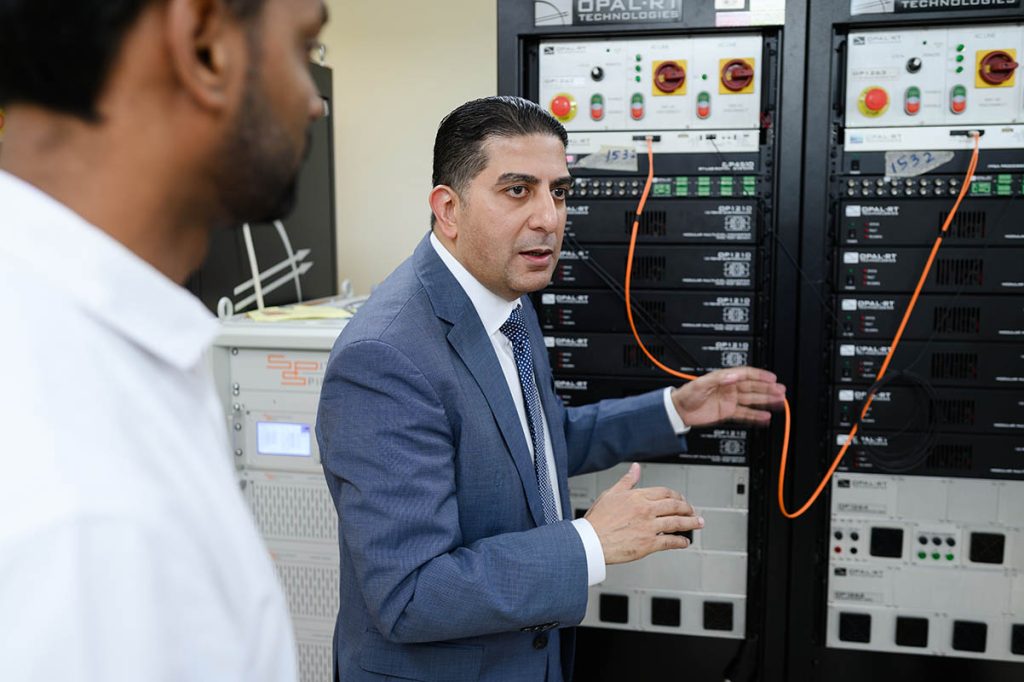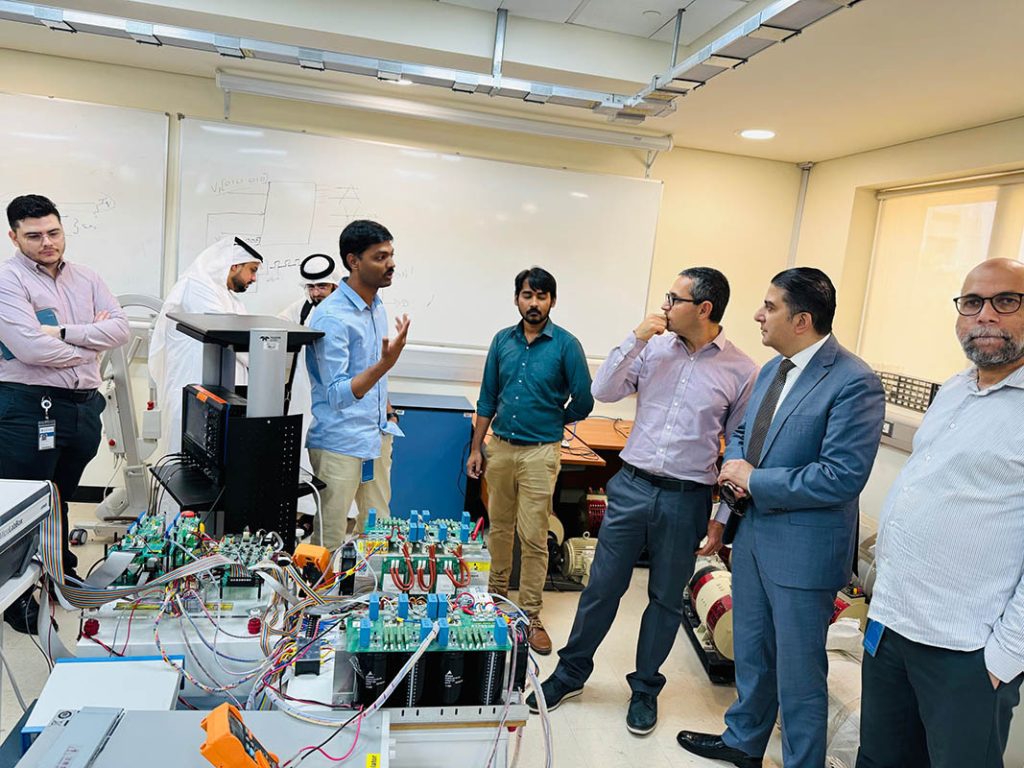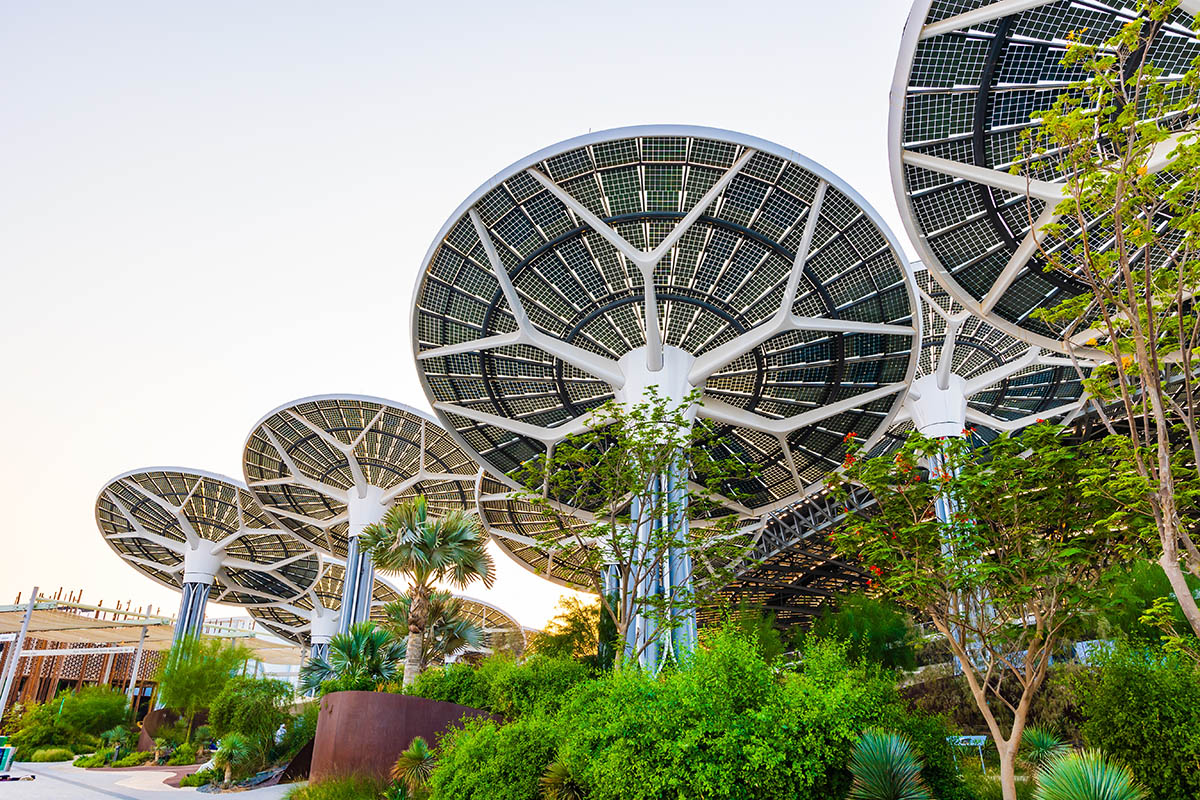Academia and industry unite for a sustainable UAE
Researchers at Khalifa University are pioneering applied research and AI tools to integrate renewable energy into national power grids with real-world solutions.
“Sometimes industry and academia speak two different languages, we aim to bring the two together and find common ground to tackle key challenges in the energy sector,” says Mohamed El Moursi, Director of Khalifa University’s Advanced Power and Energy Center (APEC) and theme lead for KU’s active transmission and distribution system research.
Researchers at KU are crafting the future of electric energy systems for the United Arab Emirates and beyond; facilitating the efficient integration of renewable and non-renewable energy resources and energy-storage systems into smart grids. They are also involved in developing artificial intelligence tools, architecture and control systems for smart grids, microgrids and transport electrification.
“We are working toward sustainable national power for the UAE and hope to ensure that the transition from non-renewables to renewables, including solar, wind, nuclear and green hydrogen production, storage and utilization, is as smooth as possible,” El Moursi says.

To achieve this, APEC teams are developing state-of-the-art smart grids and the strategies to integrate renewables into transmission and distribution power networks. Strategies include optimizing renewable energy systems while employing multifunctional energy storage systems to ensure higher grid flexibility and stability.
“APEC is now part of an advanced ecosystem generating high impact, applied solutions for key challenges.”
Mohamed El Moursi
These goals span multiple sectors across society; and to achieve them, APEC’s research teams are collaborating closely with both national and international industry partners.
Stability saves the day
A power system’s stability refers to its ability to return to an acceptable state of equilibrium operating condition following a disturbance, small or large; referred to as small-signal and transient stability respectively.
A recent collaboration with the Abu Dhabi Transmission and Dispatch Company (TRANSCO) and Manitoba Hydro International (MHI) in Canada, resulted in the development of new AI-based software that help system operators predict small-signal and transient stabilities in TRANSCO’s power network, which has renewable and nuclear power integrations. They developed software, dubbed ‘Stability Assessment, Visualization, and Enhancement’ (SAVE), with a user-friendly interface to better inform operators and improve the integration of renewable energy sources into the UAE power system.
“Successful renewable energy integration relies on ensuring the stability of the power grid,” says El Moursi. “The SAVE software applies advanced artificial intelligence, deep-learning and system-identification techniques to assess overall system stability. It can capture the inherent dynamic characteristics of the power grid, including small-signal and transient stabilities, and thus can be used to provide fast and accurate predictions that operators can act on.”

Designed with a user-friendly interface, SAVE is now used successfully by TRANSCO and the Emirates Water and Electricity Company, and will soon be available internationally.
Efficient energy management
A second significant project at KU has been the development of the Renewable Energy Management System (REMS) platform. REMS provides operators with a tool to plan, integrate and control energy provision from a mix of renewable and non-renewable power sources. It can forecast intermittent renewable power generation and load demand, then control the scheduling of renewable power generation at specific times. This improves efficiency and flexibility; and improves the cost-effectiveness of the overall power grid operation.
“REMS improves the energy dispatch capabilities of hybrid renewable power plants, achieving efficient ancillary services. Moreover, the mix of renewable energy systems can be controlled as a coherent hybrid system with minimum utilization of energy storage systems,” El Moursi explains.
These two exemplary projects, along with other ongoing projects, illustrate the importance that Khalifa University places on bridging between academic and industrial partners. “The university encourages international engagement, and APEC is now part of an advanced ecosystem generating high impact, applied solutions for key challenges nationally and internationally,” El Moursi says.




